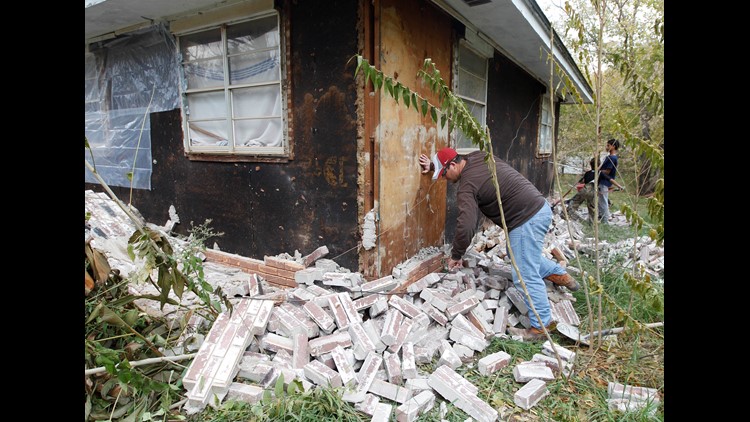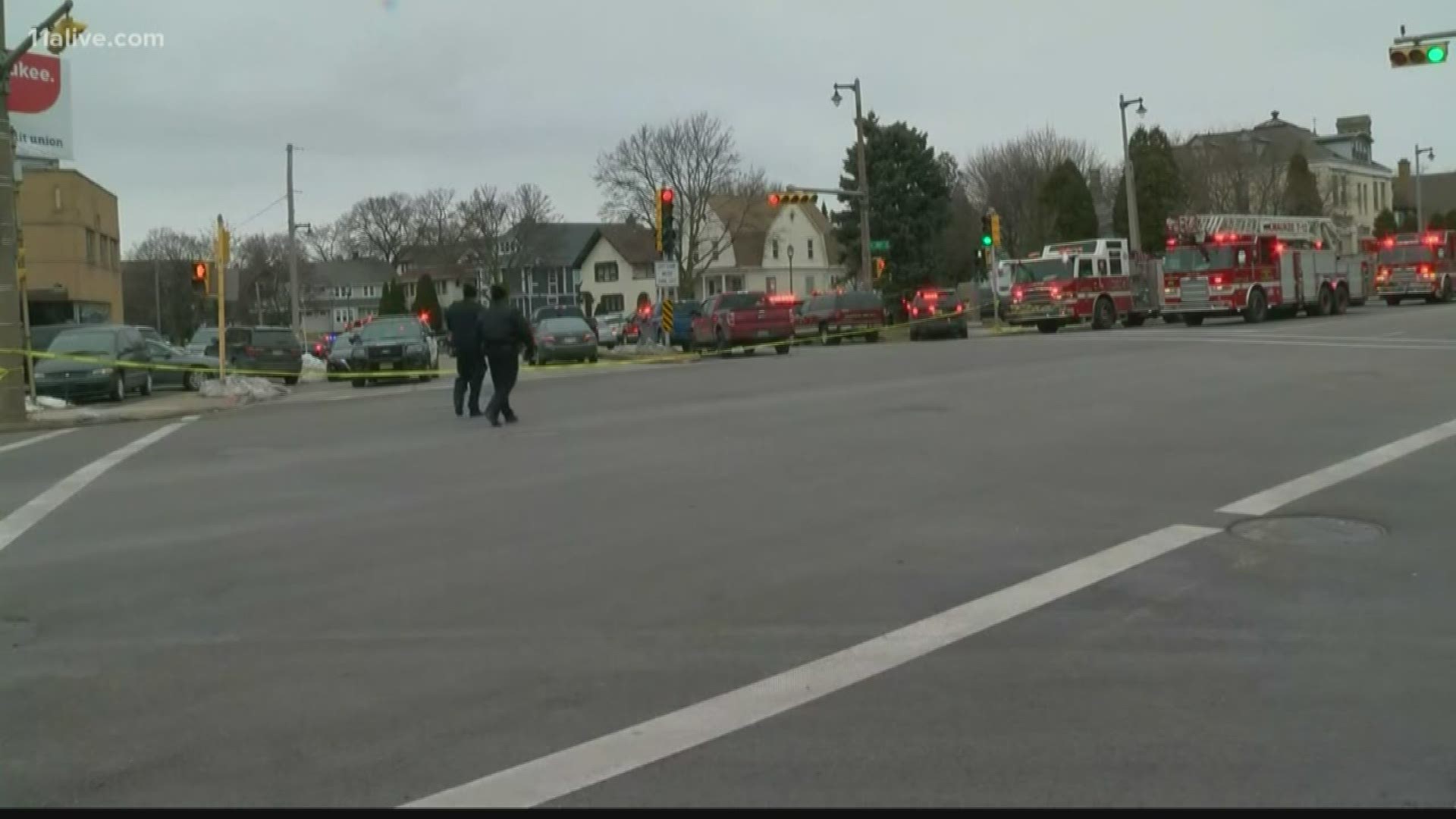If you live in Oklahoma, Kansas, Texas, Colorado, New Mexico and Arkansas beware: You are nearly as likely to experience an earthquake as high-hazard areas such as California, but the risk is man-made.
That's the conclusion in a first-ever report made public Monday from the U.S. Geological Survey, which cites the oil and gas drilling process as triggering the quakes. The assessment of human-induced seismic shaking found 7 million people in the central and eastern U.S. live in the man-made earthquake zone, said Mark Petersen, head of the USGS National Seismic Hazard Mapping Project.
![Oklahoma, land of earthquakes [video : 82262954]](http://videos.usatoday.net/Brightcove2/29906170001/2016/03/29906170001_4817637078001_thumb-TimeInc4816057349001.jpg?pubId=29906170001)
Human activities, such as wastewater disposal from drilling for oil and gas can cause earthquakes the report said.
![AP OKLAHOMA EARTHQUAKE RESEARCH A FILE USA OK [image : 82339966]](http://www.gannett-cdn.com/media/2016/03/28/USATODAY/USATODAY/635947624275590587-AP-Oklahoma-Earthquake-Research.jpg)
The central U.S. has seen the most dramatic increase in seismic activity over the past six years, the report found, as wastewater injection became more widespread. From 1973 to 2008, the USGS recorded more than 20 earthquakes of magnitude-3.0 and larger per year. Such events increased tenfold from 2009 to 2015 – to an average of 318 a year. In 2015, the USGS recorded 1,010 earthquakes.
The report notes that most quakes are triggered by wastewater disposal from oil drilling, and far fewer from fracking.
Fracking, or hydraulic fracturing, has spurred a boom in oil and natural-gas production. The fracking process blasts millions of gallons of water — mixed with sand and chemicals — deep underground to break apart shale deposits and release natural gas.
An industry group said only a small percentage of injection wells are causing the quakes: “The vast majority of injection wells are not associated with earthquakes, a fact that’s confirmed by the U.S. Geological Survey’s report," according to Katie Brown, a spokesperson for Energy In Depth, a program of the Independent Petroleum Association of America, a trade group.
"Data from the USGS and peer-reviewed studies show that less than 1% of injection wells across the United States have been even potentially linked to small earthquakes," Brown added.
"This is a complex issue, and most earthquakes are not induced. But this is also an issue that scientists say — with near uniformity — can be effectively managed,” she said.
![Gannett-cdn [oembed : 82346674] [oembed : 82346674] [oembed : 82346674] [oembed : 82346674] [oembed : 82346674] [oembed : 82346674] [oembed : 82346674] [oembed : 82346674] [oembed : 82346674] [oembed : 82346674] [oembed : 82346674] [oembed : 82346674] [oembed : 82346674] [oembed : 82346674]](/Portals/_default/Skins/PrestoLegacy/CommonCss/images/smartembed.png)



